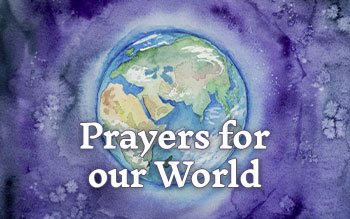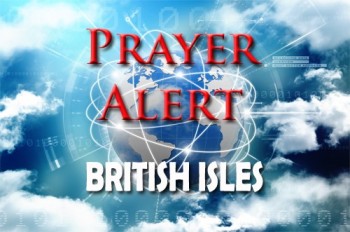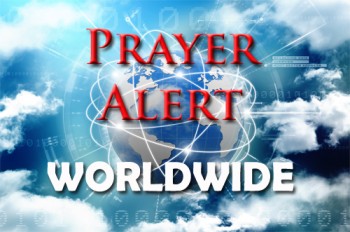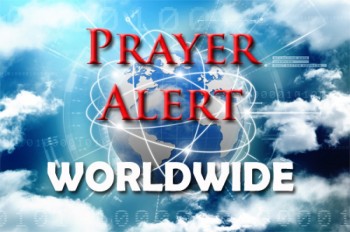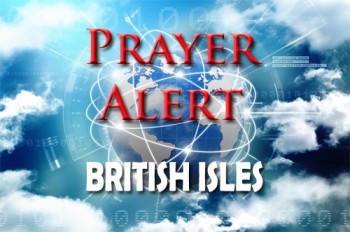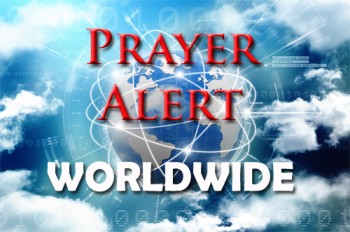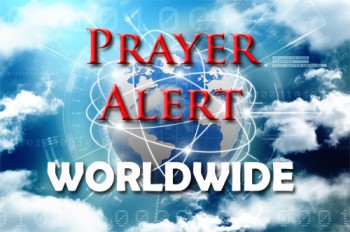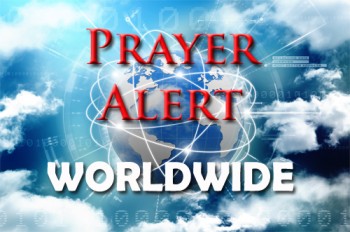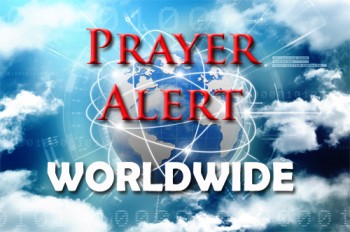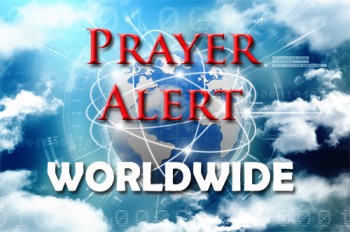Displaying items by tag: Christian persecution
Christians persecuted in 3 of 4 nations globally
'Have been harassed in more countries than any other religious group'
There are some 197 countries around the world.
And in 144 of them, Christians are persecuted, according to a report commissioned by the British government.
There is widespread evidence showing that “today, Christians constitute by far the most widely persecuted religion,” the report said.
It found that “Christians have been harassed in more countries than any other religious group and have suffered harassment in many of the heavily Muslim countries of the Middle East and North Africa.”
There are some 245 million Christians living in the top 50 countries for persecution and they suffer “high levels” or worse. Previously, only one country, North Korea, was classified as having “extreme” persecution. Now there are 11 countries.
Turkish journalist Uzay Bulut, a senior fellow at the Gatestone Institute, noted “persecution against Christians and other non-Muslims is not about the ethnicity, race or skin color of either the perpetrators or the victims; it is about their religion.”
In Africa, he said, “various Islamist groups and individuals are attacking and attempting to annihilate Christians for being Christian. If these crimes are not stopped, it is highly likely that the fate of the African Continent will be like that of the Middle East: Once it was a majority-Christian region; now, Christians are a tiny, dying, defenseless minority.”
The British report is the “Bishop of Truro’s Independent Review for the Foreign Secretary of FCO Support for Persecuted Christians.”
The FCO is the nation’s Foreign and Commonwealth Office.
The bishop, the Rt. Rev. Philip Mounstephen, explained: “The Independent Review was announced at Christmas and this Interim Report is published in the Easter season. Both of these great festivals remind us that weakness and vulnerability are at the heart of the Christian faith. Jesus Christ was born into poverty and laid in a feeding-trough. He died as a victim of persecution himself. Given that, it is hardly surprising that many of his followers today count among the weakest and most vulnerable people on the planet. It is to them, to their needs and to their support, that this Interim Report is dedicated.”
He wrote that in addition to Christians being the most targeted, “the evidence suggests that acts of violence and other intimidation against Christians are becoming more widespread.”
The report said that “in some regions, the level and nature of persecution is arguable coming close to meeting the international definition of genocide.”
It said the “eradication of Christians and other minorities on pain of ‘the sword’ or other violent means was revealed to be the specific and stated objective of extremist groups in Syria, Iraq, Egypt, northeast Nigeria and the Philippines.”
“An intent to erase all evidence of the Christian presence was made plain by the removal of crosses, the destruction of church buildings and church symbols,” the report said.
“The killing and abduction of clergy represented a direct attack on the church’s structure and leadership. Where these and other incidents meet the tests of genocide, governments will be required to bring perpetrators to justice, aid victims and take preventative measures for the future.”
Christianity, in fact, “now faces the possibility of being wiped out in parts of the Middle East where its roots go back further. In Palestine, Christian numbers are below 1.5 percent, in Syria the Christian population has declined from 1.7 million in 2011 to below 450,000 and in Iraq, Christian numbers have slumped from 1.5 million before 2003 to below 120,000 today.”
In some parts of the world, “extrajudicial killings and the enforced and involuntary disappearance of Christians are also widespread,” the report said.
Bulut cited the destruction of a Christian school by Muslims in Uganda, a church in Niger burned by Muslims and terror attacks in Burkina Faso that left 29 Christians dead.
In one incident, the assailants “asked the Christians to convert to Islam but the pastor and the others refused.”
“They ordered them to gather under a tree and took their Bibles and mobile phones. Then they called them, one after the other, behind the church building where they shot them dead.”
He said that terrorist groups are not the only sources of persecution in Africa as many Muslim governments and individuals also target Christians.
We must pray for our Indian brethren, asking God to preserve the faith in a subcontinent where it is every bit as native as that which seeks to drive it out.
Article by WND
More at:https://www.wnd.com/2019/07/report-christians-persecuted-in-3-of-4-nations-globally/
Children excluded for opposing LGBT lessons
Ten-year-old Kasey, a Pentecostal Christian, is speaking out against the growing LGBT agenda in her classroom. As parents nationally protest against LGBT school lessons, the Christian Legal Centre is supporting courageous Kasey and her mother, who are taking a stand against a school seeking to eradicate any opposition to its LGBT agenda. Kasey and her Catholic friend, Farrell, were explaining in the lesson how gay people would be 'punished' for their sexuality in some countries, but their point was misunderstood and the school suspended them for five days for being homophobic. Kasey said, 'I only learned what homophobic means the other day. I'm not homophobic, I'm just against the school traching LGBT topics to children.' Kasey's mother said, 'The school is failing to recognise our Christian beliefs and is persecuting us for wanting to maintain our Bible principles.' The Christian Legal Centre said the situation reflects the sexual agenda imposed on innocent children.
Nigeria: pregnant mother among five Christians killed
Muslim Fulani herdsmen are attacking churches in north-central Nigeria and crippling productive activities. Attacks have heightened, with one village or another attacked nearly every day. The most recent attack reported in the media was in Jos where a pregnant mother of two and three other Christians were killed by Fulanis. They also attacked other Christian communities, burning down 75 houses with food stores and two church buildings. The herdsmen beheaded a church elder after killing him. ‘We have been experiencing daily attacks by these Fulani herdsmen in our communities, most especially on Sundays during worship hours or Thursdays when church activities are held,’ said a pastor. The herdsmen also destroyed farm produce worth millions of naira, and a lot of domestic animals were killed in the attacks. Christians make up 51.3% of Nigeria’s population; Muslims account for 45%.
Mali: entire Christian village massacred
Between 100 - 135 people were slaughtered by heavily-armed Islamist extremists in a mainly-Christian village in the Mopti region of central Mali. Barnabas Fund described it as the ‘worst Mali massacre since 1946’. The jihadists encircled the isolated village of ethnic Dogon people at night and set fire to ‘everything’ in a ‘well-targeted attack’. All the victims were shot dead or burnt to death; some were charred beyond recognition, making it difficult to identify them. They set fire to all who ran and all who did not dare to go out. Only a few men escaped the gunfire. A survivor said, `About 50 heavily armed men arrived on motorbikes and pickups, surrounded the village and then killed anyone who tried to escape. No-one was spared – women, children and elderly.’ Since 2018 many Christians have been killed, abducted or forced to flee, with churches ransacked in an attempt to establish sharia law.
Christian GP investigated by medical watchdog
Dr Richard Scott runs the Bethesda Medical Centre, caring for almost 20,000 patients. At the end of the standard Western medicine procedure he asks his patients for their permission to introduce elements of faith into his consultation. He maintains that his behaviour is vindicated by the WHO, which includes spiritual alongside physical and mental wellbeing and has ‘involved a spiritual angle’ for patients with depression, anxiety or addiction. Now he faces disciplinary action by the General Medical Council and could lose his job, following complaints to the National Secular Society by an acquaintance that a ‘highly vulnerable’ patient felt ‘discomfort at the use of prayer’. Christian Concern said that Dr Scott always asks his patients if they're open to discussion. Sometimes they're not, and he respects that.
Algeria: punished for worshipping at home
Prosecutors sought a six-month prison sentence and a huge fine for a 35-year-old father in the coastal town of Mostaganem because he invited a Christian couple to come and pray with him in his home. The judge instead awarded a two-month suspended prison sentence and a small fine to the new Christian, who requested anonymity as he fears for his life in the officially Muslim country. He was accused of organising Christian worship; and the law forbids non-Muslim worship for unregistered churches. Sources said that a neighbour had denounced him; he is frightened and shocked by this accusation. Algeria is ranked 22nd on the World Watch List of the countries where it is most difficult to be a Christian, up from 42nd last year.
Niger: Boko Haram violence against Christians
Boko Haram warned Christians, ‘You have three days to go or you will be killed!’ So rural families fled to Diffa city. Islamist militias have killed dozens and displaced thousands in the Diffa region of Niger, according to UN officials. There are an estimated 200,000 displaced people in Niger: those displaced internally, and also many who are fleeing the Boko Haram insurgency in Nigeria. Niger’s church ministers working close to zones of conflict are now taking refuge with other Christians in the relative safety of Niamey, the capital. This means that no minister now lives in the premises of the church in these dangerous areas. An observer said, ‘I do not know how the services take place every Sunday, but the churches are not closed’. Earlier this month the governor of the Diffa region ordered churches to close due to the threat of terrorist attacks.
Nigeria: Christian persecution growing
Mrs Adeleye and her stepson, Destiny Paul, were driving home from church on 9 June when Fulani herdsmen blocked the road with cows. She tried to turn their car and escape but they attacked, damaged her car, and abducted them both the boy. They later demanded N10 million ransom from her husband. The police said they had swung into action, and would soon get the victims free, unhurt. Attacks on Christians in Nigeria are growing in ferocity and frequency according to Father John Bakeni, a priest who works with survivors of extremist violence. He said, ’The ongoing conflict with Boko Haram and attacks by predominantly Islamist Fulani shepherds have instilled great uncertainty and fear in us Nigerians. We consider each day we live in safety a blessing, because we do not know what will happen the next day.’ He added, ‘It is very difficult to be a Christian in this part of the world, but our faith encourages us to bear witness to the Gospel bravely.’ See
India: five year plan
Five year plans are centralised and integrated national economic programmes. India launched its first one in 1951 under Jawaharlal Nehru. Although he has no ‘plan’ for the next five years, a bitterly contested election campaign appears poised to give prime minister Narendra Modi and his Hindu nationalist BJP party a resounding mandate for the next five years. For thirty years India was governed by a series of broken, temperamental coalitions. Modi’s election in 2014 broke the pattern, and this victory will exceed even the BJP’s expectations. The primary force for Christian persecution in India is Hindu nationalism, which voices the belief that India belongs to the Hindus and that people of other faiths should find somewhere else to live, work and worship. In 2018 more than 12,000 Christians were attacked, but this number is only the tip of the iceberg, researchers say, as increasing numbers of persecution acts go unreported. See
Libya: persecuted for faith and gender
There are about 37,900 Christians in Libya: most are migrant workers from abroad. Libyan Christians must keep their faith secret, so it is hard to know how many there are in this tribal, Islamic society. The government claims that ‘all Libyans are Muslims’. The anarchy and civil war mean that the rule of law barely exists, and Islamist extremists attack Christians freely. Leaving Islam is a betrayal, and being a woman makes you second class. Christian women in Libya are doubly vulnerable to persecution, targeted for their gender and their faith. Their suffering is invisible. They are ignored by the world around them. Open Doors want every woman to reach her God-given potential, and have launched a ‘Change’ campaign. For more info click the ‘More’ button.
